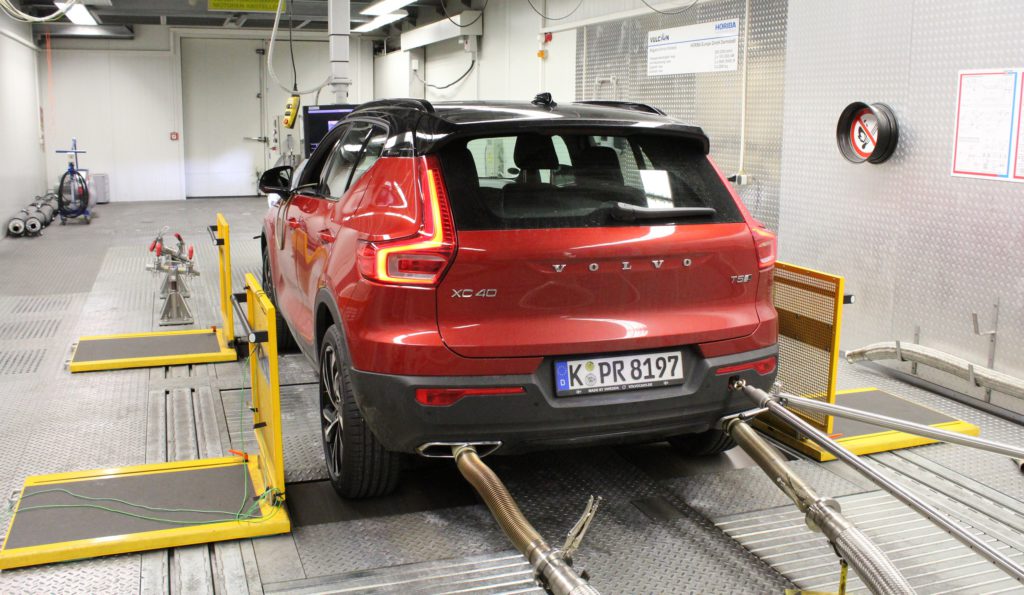New EU regulation on vehicle type approval and checks comes into effect
01 September 2020

1 September 2020
Updated EU regulations on the approval and market surveillance of motor vehicles come into force today, 1 September. The new rules significantly overhaul and strengthen the previous system, improving the quality and independence of vehicle-type approval and testing, and increasing checks of cars already on the market. They also grant the EU Commission powers to perform its own checks on vehicles, with large fines for any carmakers found to be breaking the rules.
The new regulations were first proposed by the Commission in 2016, in the wake of the Dieselgate scandal, and adopted by the European Parliament and the Council on 30 May 2018.
The key elements of the new EU rules are:
- Independence and quality of testing before a car is placed on the market: Technical services performing testing and inspections of new car models will be independently audited on the basis of stringent criteria to obtain and keep their designation by member states. National type-approval authorities are now subject to peer reviews to ensure that the relevant rules are implemented and enforced rigorously across the EU.
- Checks on cars already on the market: The new framework also improves checks on the vehicles that are already circulating on the market and for sale at the dealerships. From now on, member states are required to regularly test a minimum number of cars and are now able to take safeguard measures against non-compliant vehicles on their territory without waiting for the authority that issued the type approval to take action.
- European oversight: In addition, the Commission is now able to carry out compliance and conformity checks on vehicles in laboratories or on the road. In cases where manufacturers are in breach of type approval legislation (e.g. defeat devices or fake declarations), the Commission can order EU-wide recalls and impose sanctions on those manufacturers of up to €30,000 per car. Until today, only national authorities that type approved the car could impose such measures.
The Commission has provided additional resources for the Joint Research Centre (JRC) to take up this new role in market surveillance, funding necessary extra staff, operational costs and the construction of two new laboratories. The JRC has two new state-of-the-art laboratories to conduct the checks.
Thierry Breton, Commissioner for Internal Market said: ′Europeans rightly expect to drive the cleanest and safest cars. That presupposes the strictest controls of cars placed on the market and circulating on our roads. It also requires real enforcement and oversight at European level: that is why from now on the Commission will be able to carry out checks on cars, trigger EU-wide recalls, and impose fines of up to €30,000 per car when the law is broken. These reforms complement our work on cleaner and safer mobility, which in the challenging context of the crisis require even more future-oriented investments in infrastructure and innovation. Our efforts to restore consumer confidence, strengthen the Single Market and support the long-term viability and global competitiveness of Europe’s car industry go hand in hand.’
Following the UK’s departure from the EU on 31 January, new EU legislation is not automatically adopted without a formal consultation by the UK Government. The regulation does apply in the UK too. This follows a the consultation period, which began on 1 June and ran until 26 June.
Improved emissions testing
This reform is part of the Commission’s wider work for a clean, sustainable and competitive car sector as laid down in the Commission Communication ‘Europe on the Move‘. Commission initiatives include air quality and CO2 standards, the improvement of emissions testing for cars, support for alternative fuels and battery production, and defending the competitiveness of European industry.
Since 1 September 2017, new car models have to pass more reliable emissions tests in real driving conditions (′Real Driving Emissions’ – RDE) as well as an improved laboratory test, the World Harmonised Light Vehicle Test Procedure (WLTP).
The new type-approval rules will further ensure carmakers’ ongoing compliance with EU law, including more stringent emissions limits. From 2021, the average emissions target is set at 95g/km CO2. For every 1g/km of CO2 that a manufacturer exceeds its average emissions target by, it will be fined €95 multiplied by its volume of new-car registrations in the preceding year. The highest-polluting 5% of new cars registered in 2020 are excluded from the 2021 fines calculations, which serves as a transitional phase for carmakers. Nevertheless, most, if not all, car manufacturers in the EU are not expected to meet the new 95g/km target and could face fines amounting to more than €20 billion in both 2021 and 2022.